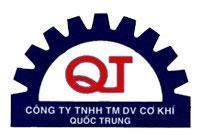NEWS
Vietnam’s mechanical engineering industry and the story of mechanisms and policies
There have been many mechanisms and policies to support mechanical business development. But so far, these incentives have not really come to businesses, helping the mechanical engineering industry develop.

Sản xuất các linh kiện kim loại, cơ khí…tại Công ty Cơ khí Chính xác Việt Nam 1, 100% vốn đầu tư của Đài Loan. Ảnh: Danh Lam – TTXVN
Định hướng phát triển ngành cơ khí đến năm 2025 đặt mục tiêu đáp ứng trên 50% nhu cầu thị trường trong nước và chiếm tỷ trọng 21% trong cơ cấu ngành công nghiệp. Để có thể đạt được mục tiêu này, các doanh nghiệp cơ khí cần những ưu đãi mang tính thiết thực và có trọng tâm hơn để tạo thị trường cho doanh nghiệp phát triển, thay vì việc có ưu đãi cũng như không trong thời gian qua.
Đây là ý kiến được nhiều doanh nghiệp và chuyên gia đưa ra tại hội thảo “Chiến lược phát triển ngành cơ khí Việt Nam” do Bộ Công Thương tổ chức ngày 10/11.
Ông Phạm Anh Tuấn, Phó Vụ trưởng Vụ Công nghiệp nặng – Bộ Công Thương cho hay, năm 2014, giá trị xuất khẩu ngành cơ khí đạt hơn 15 tỷ USD. Tuy nhiên, nhập khẩu lại hơn 26,5 tỷ USD. Cùng với đó là tỷ lệ nội địa hóa của ngành mới chỉ đạt hơn 30%, thấp hơn mục tiêu của Chiến lược là 40-50%.
Ông Nguyễn Tăng Cường, Chủ tịch Công ty cổ phần công nghiệp Quang Trung, cho biết doanh nghiệp đã đầu tư lớn từ nhiều năm để đón đầu chiến lược phát triển cơ khí. Nhiều chính sách ưu đãi hỗ trợ về vốn cũng được đưa ra, nhưng khi đi vay vốn tại các ngân hàng thì đều không thể tiếp cận được, mất rất nhiều thời gian, cơ hội.

Mr. Nguyen Tang Cuong, Chairman of Quang Trung Industrial Joint Stock Company, spoke at the seminar. Photo: Duc Dung / BNEWS / TTXVN
Another point of note in the strategy mentioned by Mr. Cuong is to clearly orient the development at which stage of production. Mechanical fields of agriculture, transportation, construction, machine manufacturing … with thousands of different products. But these products all have 7 steps: design, mold making, ingot, machining, heat, assembly, and factory testing.
In the field of mechanical engineering, most of Vietnam can only handle assembly, the remaining stages, especially the design and manufacture of molds, have not been paid attention to invest.
“If so, how do we develop mechanical success, how to participate in international integration, global industry. Because the capital is limited, so the strategy needs to clearly indicate which stage of development, how to develop, with how much capacity, for businesses to embark on investment. As long as there is a direction and incentive mechanism to create markets for businesses, the industry will develop, ”Mr. Cuong said.
The company also cited, for example, that the state can create markets in the design or model stages, businesses borrow money from banks and make products. If the product comes to life, the state will provide full support. So there will be no situation of snatching.
Sharing the same point of view, Mr. Tran Van Quang, Chairman of Dong Anh Electrical Equipment Corporation, said that businesses need state support in the market, otherwise businesses would not dare to invest.
Mr. Quang also said that it is necessary to give incentives to help businesses participate in domestic projects; step by step create products and build reputation in the market.
Products manufactured by domestic enterprises that meet quality standards and competitive prices can help to restrict imports. Especially when borrowing capital to do projects, in the process of negotiating the localization rate, it is possible for domestic enterprises to produce.
Obviously, if domestic mechanical enterprises are allowed to “swim” by themselves and fight in the context of internal strength, technology, which is still low and integration is approaching, the mechanical engineering industry will still face many challenges. hard.

Producing mechanical products at Viet Vuong Joint Stock Company operating in Thuy Van Industrial Park (Phu Tho). Photo: Vu Sinh-VNA
The representative of Narime Mechanical Research Institute said that the mechanisms and policies supporting enterprises in terms of investment, loans, land and taxes are sufficient. But whether these supports will reach the business or not because in the difficult context of most mechanical enterprises today, with the integration trend, the incentives will gradually be removed.
Therefore, the market capacity, what is the market support, how to protect the market and how long to protect it is the priority for businesses. Then there are other preferential policies.
Deputy Minister of Industry and Trade Cao Quoc Hung affirmed, the Ministry will receive the comments of businesses, to continue to exchange, research, and give an industry development strategy in the coming period to be more specific. Better business support.
However, businesses can not rely too much on state policies, but businesses themselves need to be more self-reliant and better connected.
